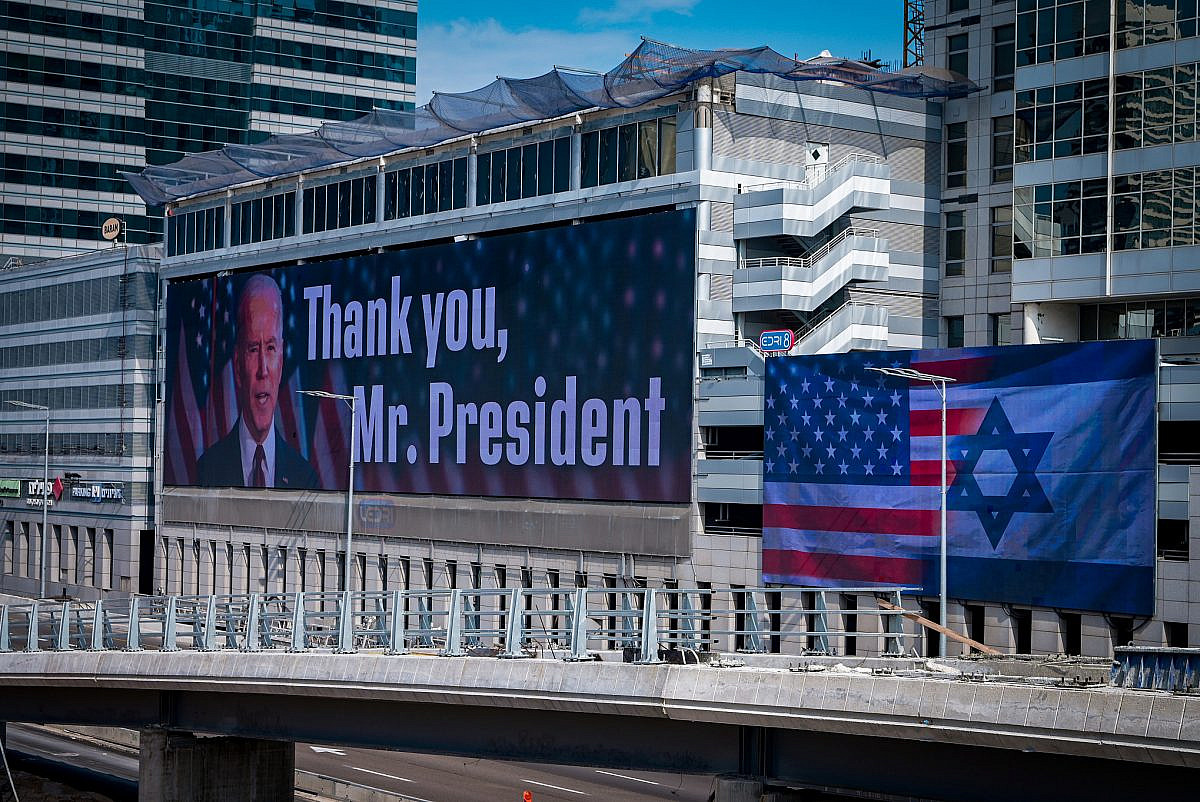Israel’s policy of separation and containment is failing before our eyes. Horrifically. The disastrous idea that the Gaza Strip can be treated as separate from the rest of Palestine, and that Israeli military deterrence and technology is enough to keep violence to a sufficiently manageable level that doesn’t force any major political decisions, came tumbling down with the images of trucks full of Hamas fighters pouring across the Gaza separation fence on Oct. 7.
For the majority of the 21st century, Israel has pursued policies in Gaza that it believed would give it space to continue its apartheid and occupation regimes. By maintaining separation, encouraging political schisms, and doing everything it could to cut cultural, economic, and even family ties between Palestinians in the West Bank, Israel, and Gaza, it hoped to compartmentalize each population and treat the political and security challenges they each pose as discrete. By withdrawing its troops and settlers from Gaza, as it did in 2005, Israel believed it could stave off international pressure to do the same in the West Bank.
That era is over.
The Israeli government is already shaping the geopolitical reality that will emerge when the smoke eventually clears over Gaza. Even at this early stage, how it seeks to achieve its tangible objectives for this nascent war — ensuring that Hamas can no longer govern or pose a threat to Israel — will also forge the political reality for decades to come. We don’t know what that vision is yet, but there should be no doubt that as long as the current Israeli government is in charge, whatever shape it takes will be designed to entrench apartheid and inequality.
If there is any chance of altering that trajectory, the international community will need to urgently and explicitly acknowledge that Israel’s previous policy of separation and containment in Gaza, in which it was complicit, is a broken paradigm — and that there can be no “answer” to Gaza independent of the rest of the Palestinian question writ large. With his visit to Israel today, President Biden has an opportunity to lead efforts to end this war in a way that paves a new path for the future.
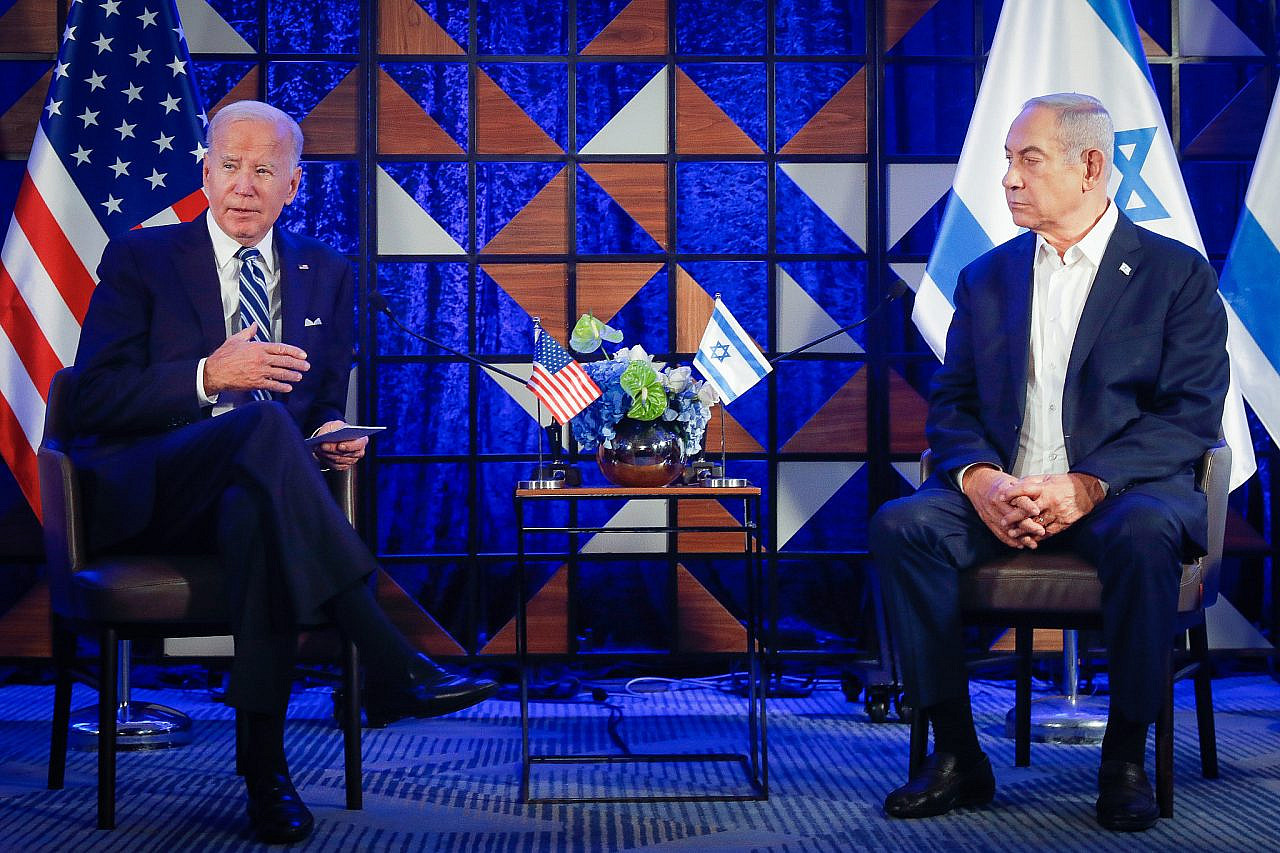
No more than a shrug
Israel planted the seeds of its policy of separation and containment of Gaza in 1991, when it stopped allowing Gazans to travel freely in and out of the territory. Around the turn of the century, Israel began to fence Gaza in. When it withdrew its troops and settlers from the strip in 2005, its leaders propagated a fanciful sentiment that Israel had washed its hands of the coastal territory. After Hamas seized power in 2006, Israel put the entire population of Gaza under siege, resulting in economic devastation, abject poverty, and the imprisonment of 2 million civilians, enforced every few years through bombing campaigns glibly referred to as “mowing the lawn” or “maintenance.”
Successive Israeli governments convinced the world that its policies toward Gaza were justified by security, something for which Israel will not have difficulty garnering sympathy and understanding for years to come. But the main objectives of the disengagement, the siege, and the policy of separation were purely political: to ensure the survival of a regime of apartheid. That was never a secret, but, as with the cognitive dissonance that allowed Israel to buy into the flawed paradigm of separation, the international community similarly chose to look the other way.
A year before the Gaza disengagement, Israeli Prime Minister Ariel Sharon’s chief of staff and point person with the George W. Bush White House, Dov Weissglas, explained that Sharon’s decision to carry out the Gaza disengagement was underpinned by the belief that it would take the wind out of the sails of future international pressure to withdraw from the occupied West Bank. “The disengagement is actually formaldehyde,” Weissglas said. “It supplies the amount of formaldehyde that’s necessary so that there will not be a political process with the Palestinians.”
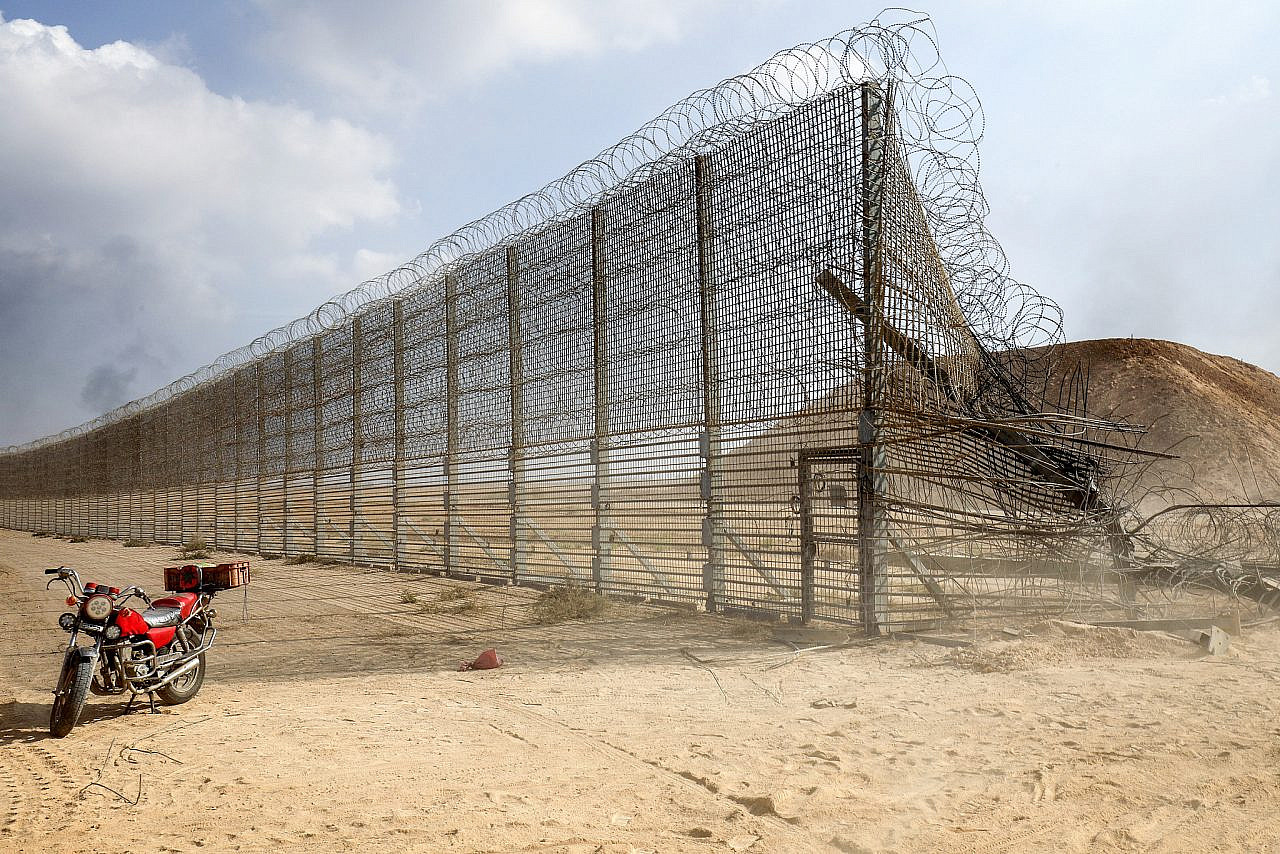
It worked. When Israel shelved the second part of the disengagement plan, “the Convergence,” which was supposed to remove most Israeli settlements in the West Bank not near the Green Line, the international community simply shrugged. When Prime Minister Benjamin Netanyahu in 2014 vowed to never end the occupation of the West Bank after torpedoing the last earnest attempt at negotiations, the world did nothing. As Israel ratcheted up the cruelty of its siege on Gaza over the years, the world continued to look the other way. And when Israel stated clearly that the siege was not about security but rather collective punishment, no one objected.
Despite never having elected the autocratic Hamas government in Gaza, Israel decided that the entire civilian population of Gaza is responsible for each and every rocket it fires. It is true that Hamas won a plurality of votes in the last Palestinian legislative election held in 2006, it supported a Fatah-led government until the two fought a bloody civil war that led to Fatah’s expulsion from Gaza a year later. Not only did Palestinians in Gaza never elect Hamas to be their government, they have also never been given an alternative.
In one of the most blunt expressions of that policy, Israeli President Isaac Herzog insisted to foreign reporters this week that the entire Palestinian nation is responsible for the Hamas attack that killed over 1,400 Israeli civilians: “They could have risen up. They could have fought against that evil regime which took over Gaza in a coup d’état.”
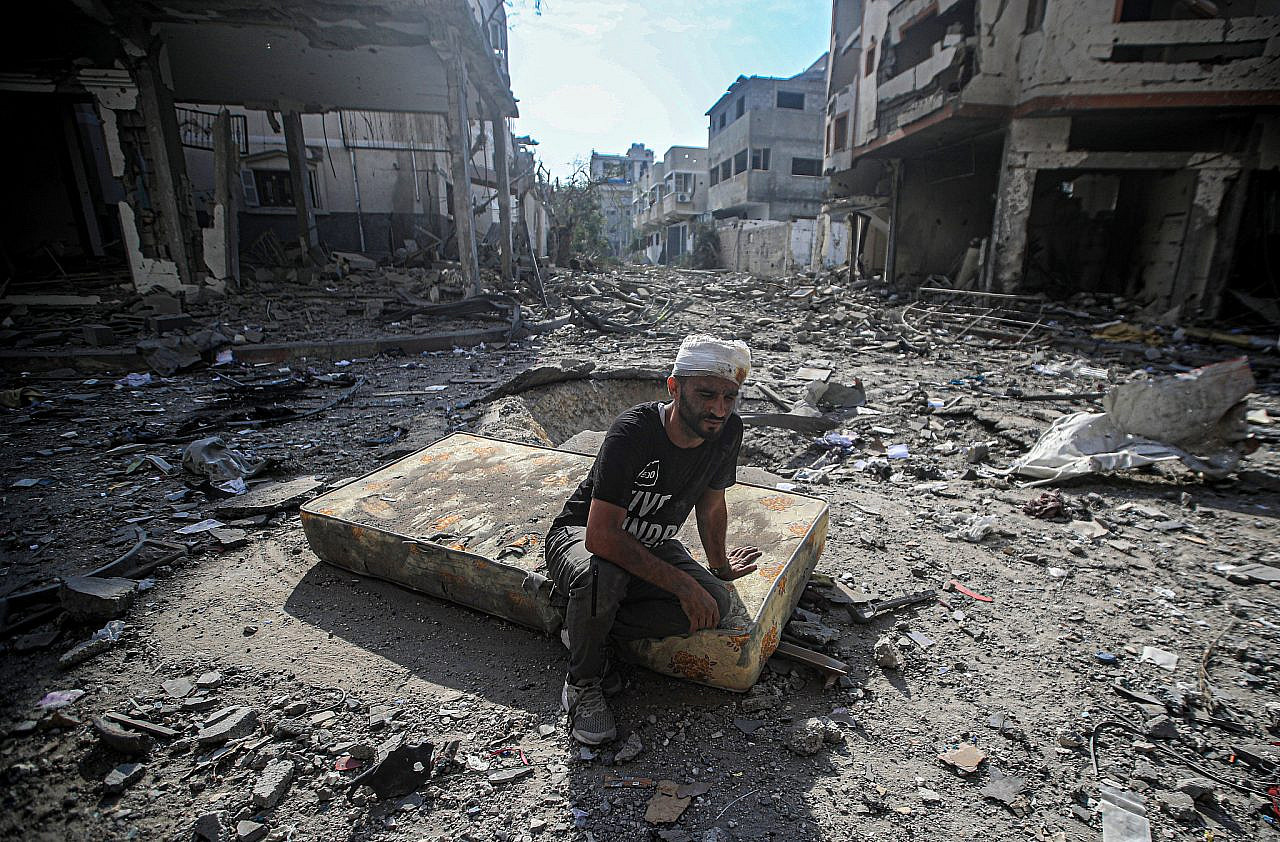
To that end, Israel did its best to make Gaza an undesirable place to live. Its policy of separation toward the strip, which predates the Hamas takeover, was meant to create “a clear and discernible gap in economic growth and governance between the Gaza Strip and the West Bank,” wrote Udi Dekel, the former head of the Israeli army’s Planning Directorate and long-time head of Israel’s Institute for National Security Studies (INSS) thinktank.
In an earlier paper, Dekel put Israel’s objectives in blunter terms: “To demonstrate particularly to Gaza residents the price of their support of Hamas.” Save for a violent coup, it’s not clear how Israel hoped Palestinians would respond to its attempt to starve them — of hope and food — into submission to Israel and loyalty to Hamas rival Fatah and its government. In any case, it didn’t work. The Fatah government has never been more unpopular, while Hamas only got stronger, politically and militarily.
Changing the paradigm
We don’t know what will happen next in this war. Dynamics can change rapidly. Military plans can change, as can our understanding of them. The carte blanche that Western powers gave Israel in the wake of the atrocities Hamas carried out will likely wane as the number of civilians it kills in Gaza rises — particularly if Israel is truthful about its objective of ending Hamas’ ability to ever threaten it again, which will invariably mean a ground invasion. Support from the Israeli public may drop if its own casualties rise unexpectedly.
Ending Hamas rule in Gaza is a military objective, however, and, as the cliche goes, war is politics by other means. Israel’s political objective, as articulated by analysts and politicians over the past few days, could include: trying to completely sever Gaza’s ties to both Israel and the West Bank, somehow making it the problem of Egypt or other countries in the region; alternatively, handing control over Gaza to the Fatah-controlled Palestinian Authority; or encouraging the flight of Palestinians from Gaza. What we can be sure of is that under this Israeli government, none of those policies are meant to advance Palestinian self-determination, Palestinian rights, or a just future for Palestinians and Israelis.
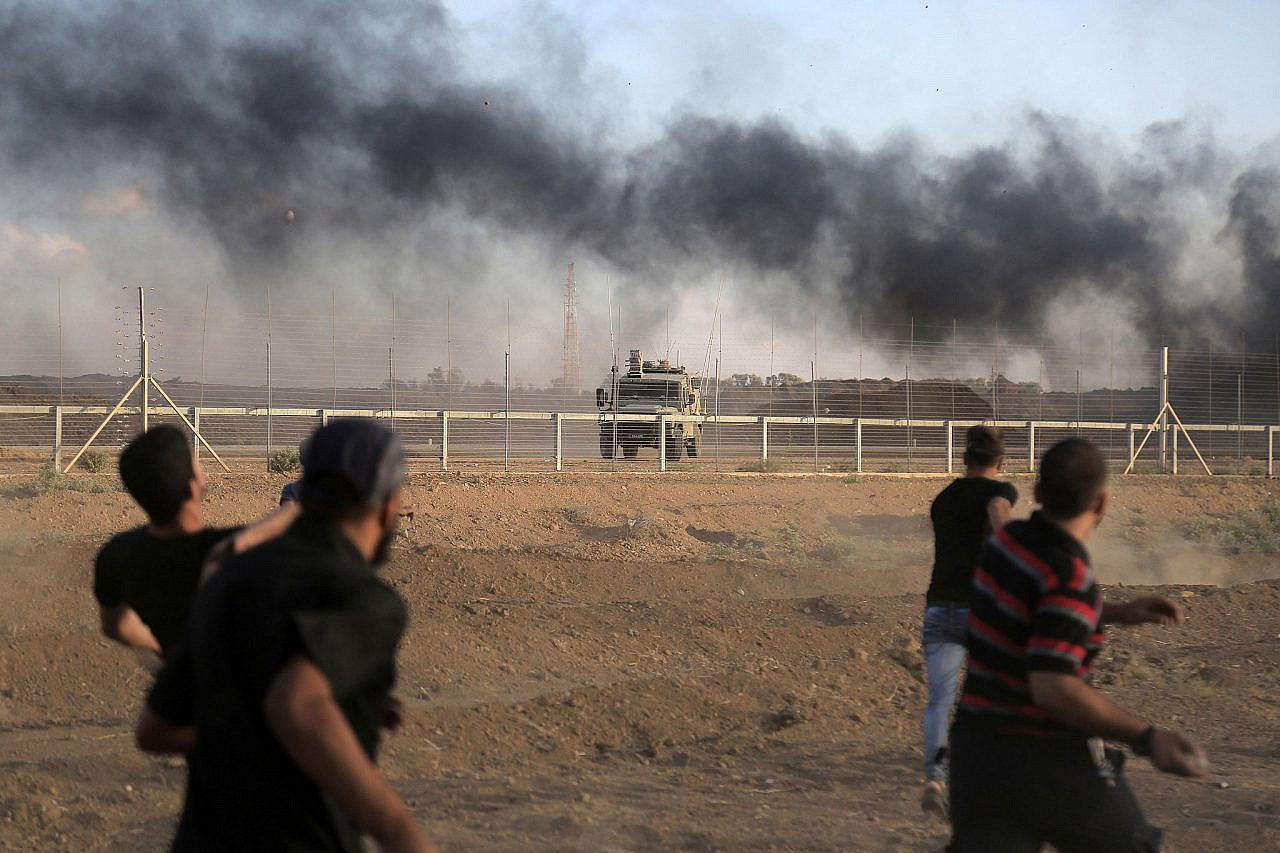
Israel cannot be allowed to shape the political reality of the day after this war on its own. In order for the United States and the rest of the international community to reach a point where it is willing to take such steps, however, it will need to first reject the previous political paradigm Israel sold it — its policy of separation. In many ways that will become more difficult: if anything, the gruesomeness and scope of the past week’s violence poured accelerant onto existing inter-group hatred, trauma, and demonization of the other, turning already far-fetched prospects of a peaceful, democratic future together into something almost unthinkable.
Israel’s latitude to yet again determine the future of life in Gaza also undeniably demonstrates that there is only one effective sovereign between the river and the sea. There is no clear path from this moment to a future in which the international community recognizes this one-state apartheid reality and acts accordingly, but it is undeniable that a rare moment of change is underway — one opened up by the understanding, based on the past week, that there is no going back to the previous order.
Most read on +972
This is a moment when the United States and the rest of the international community can — and must — once and for all reject the paradigm that says siege, occupation, and apartheid make anyone safe. This is a moment to earnestly deliberate alternatives that don’t sidestep ending the siege, occupation, and apartheid just to buy a few years of quiet.
That may not be a likely outcome, but as the biggest enabler of Israeli apartheid and occupation, the Biden administration has a duty to try. The alternative is condemning yet another generation of children to grow up in a reality of apartheid and constant war.


